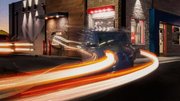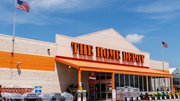News
Of perseverance, football and kiosks
The improbable story of Western Kentucky's 11-year odyssey to a football championship provides lessons for us all.
December 26, 2002
"Those who stay will be champions."
It was 11 years ago when Western Kentucky football coach Jack Harbaugh ordered that those words be posted above the entrance to the team's locker room. On Dec. 20, a school that had voted to eliminate the sport in 1992 won the Division I-AA national championship.
 |
It was Harbaugh who rallied support for the program in '92, rallying his troops despite budget cutbacks that left the school with reduced numbers of coaches and scholarships. It was Harbaugh that enlisted his football family, including former NFL quarterback Jim, to recruit players to Western and even donate used equipment from the Indianapolis Colts.
And this year, after a 2-3 start, the Hilltoppers were a long shot to record a winning season, much less make the playoffs. Once the team caught fire and won its last six regular-season games, it barely managed a berth in the 16-team playoff field. And heading to Chattanooga, Tenn. after two upset playoff wins, Western was a decided underdog in the final against the top-ranked team in the country.
Western 34, McNeese State 14.
Back to business
Now what does this Cinderella story have to do with the kiosk business?
Sports do provide lessons that last lifetimes, and this one is especially instructive for an industry that's just weathered a tough campaign.
Retailers, who make up the largest segment of kiosk buyers, have just completed a Christmas season that failed to live up to expectations. The federal government's efforts to boost the economy - interest rate cuts, tax cuts - haven't succeeded in motivating Americans to open their wallets.
Sports do provide lessons that last lifetimes, and this one is especially instructive for an industry that's just weathered a tough campaign. |
The pessimism isn't limited to retailers. The threat of war poses perhaps a larger threat to the American economy. Many state governments are either broke or tinkering with budgets to survive. Here in Kentucky, our governor has orchestrated a series of announcements meant to warn citizens that a $500 million budget shortfall will mean severe cuts in education and social services.
In the kiosk industry, we've seen too many of our friends and business partners close up shop, unable to continue as a viable business. They were thwarted either by a poor business plan, insufficient resources or, in some cases; deployments that failed to produce results.
Too many pilot programs were abandoned after short tests. Ideas that seemed to have promise never made it to the design stage. Poor attendance plagued kiosk industry events in 2002.
The bright side of the road
For optimists, 2002 represents the bottom of the barrel, and 2003 the promise of a brighter prosperous future. And if you're reading this, it's likely you're still operating.
Which brings us back to Jack Harbaugh and Western Kentucky, and the lesson of perseverance available to anyone who will listen.
I went to the game in Chattanooga with my 11-year-old son Josh, an aspiring 80-pound quarterback himself. Josh's team, in two years, has lost 15 of 16 games. He's not quitting, though, and the experience he had in Chattanooga will help his confidence, even if he suffers another tough year in 2003.
Of course, I'm a believer that experiences on the football field, or any team sport, prepare you for life in the business trenches. And I think there's a lesson that any business owner can take from the Western Kentucky story.
A little adversity can carry you a long way. Hard work pays off. Victory is sweeter when it comes at a price. Never give up.
Our little company, which helps keep you up-to-date on news of the kiosk industry, has seen its share of adversity. Approaching our third corporate birthday, we've weathered the effects of the dot-com bombs, a slumping economy, bleak predictions about online advertising and the pressure of responding to competition. We've worried that our particular business model might not sustain us.
We've also had our share of personnel changes, but we have a core group dedicated to making our company successful. That's the key, really, to making a business a winner.
A lot of our partners in the kiosk industry will look back at 2002 as a year of survival. They'll recall those whose businesses flopped, and wonder how they survived such turbulent times.
Call it wishful thinking, but let's hope that they'll be able to look back at 2002 and say it was the year they were tested, when their belief in their business plan bent but didn't break. Those who have made it through adversity in 2002 may someday look back at 2003 as the year things began to turn around, when the economy recharged its engine and they were glad to still be on the train.
Sure, businesses must adapt strategy to respond to market conditions, but good teams don't fail because of a little adversity. They don't make excuses. They find a new way to win.
In Chattanooga, I joined the party on the field, touching the fallen goal posts, celebrating with delirious players, who were in no hurry to leave the scene of their finest hour. I saw Jack Harbaugh doing interviews, talking about his greatest victory in his fourth decade as a football coach. The story of his locker room sign, given national prominence thanks to a USA Today story printed the previous day, made it all so real, but still he expressed disbelief. "Can you believe we're national champions? Western Kentucky University from Bowling Green, Kentucky."
That's right, Jack. You've taught us a valuable lesson.












